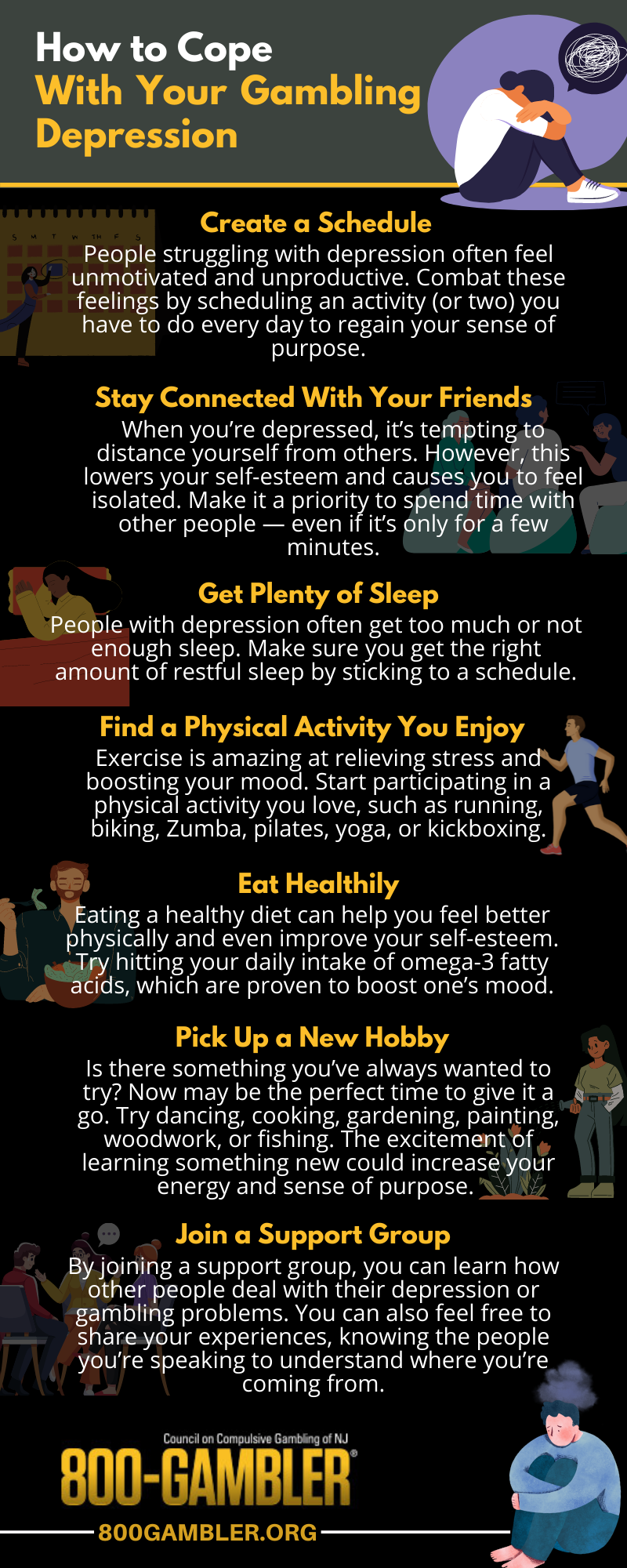Have you found that it’s become increasingly hard to get up in the morning, be motivated to do anything, or care about the consequences of your actions? These could be just a few signs you are suffering from depression due to your gambling problem. These feelings could also be why you started gambling in the first place. Perhaps, your gambling behaviors gave you a boost of energy or alleviated your feelings of loneliness and boredom.
Now that you’ve decided to stop gambling, you need a more constructive and healthy way to deal with your depression other than turning to your favorite gambling site or app. Even if you are feeling at your lowest right now, a brighter future is within reach. Here’s how you can take your first steps toward overcoming your gambling depression.
Are You Feeling Depressed?
Everyone understands the excitement of a win and the disappointment of a loss. However, problem gamblers suffering from depression will experience emotions well beyond those initial feelings of sadness. Gamblers with depression will often have feelings of extreme guilt and shame. They will often come to a point where they no longer experience satisfaction with any type of win and are unsuccessful at quitting. They may also experience the following more often than not:
- Irritability
- Frustration
- Feelings of worthlessness
- Loss of interest in friends and favorite activities
- Tiredness
- Difficulty getting out of bed
- Loss of appetite or weight gain
- Negative and hopeless thoughts
- An uncontrollable desire to gamble
If you’ve had any of these symptoms of depression for more than two weeks and they are negatively impacting your life, you may have severe depression, and it’s time to speak to a mental health professional. Make sure you discuss your gambling problem, as well, since they may be interlinked.
Did you know the National Council on Problem Gambling estimates that 76% of problem gamblers are likely to suffer from depression? Whether you were dealing with a depressive disorder before or after you started gambling, it’s best to treat your gambling disorder and depression at the same time because they are likely interlinked.
Your healthcare provider may recommend counseling, support groups, or medication. While you are waiting to speak to or are currently working with a professional, you can make some lifestyle changes to boost your mood, relieve your feelings of depression, and take your mind off of gambling.
It Starts With a Single Step: Ideas for Overcoming Your Gambling Depression
Whether or not you feel up to seeking professional treatment, you can start taking steps now to improve your overall well-being and regain your energy. Things like eating healthier, creating a daily routine, reconnecting with friends, and requesting to be excluded from particular gambling venues and websites can significantly boost your outlook on life and help you feel you have control once again.
If you’re dealing with depression related to your gambling disorder, try these techniques:

These ideas can also help you overcome your gambling withdrawal symptoms. When you regularly participate in activities you enjoy and that are good for your mental, physical, and emotional health, you will notice that your gambling urges decrease as well as your feelings of depression.
Do You Need Help Dealing With Your Gambling Depression?
It’s common for people with gambling problems to also experience feelings of depression. If you’re concerned about your feelings of despair and negativity, help is available. Call 1-800-GAMBLER to speak with a licensed professional and receive resources on overcoming gambling disorders and depression. You can also join Gamblers Anonymous meetings for additional support from people who understand your feelings.
Don’t suffer alone any longer; get help today!



